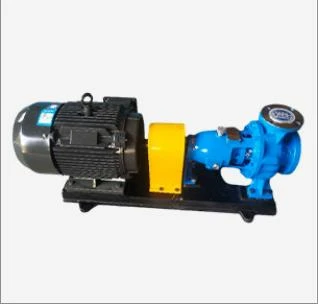English
- Afrikaans
- Albanian
- Amharic
- Arabic
- Armenian
- Azerbaijani
- Basque
- Belarusian
- Bengali
- Bosnian
- Bulgarian
- Catalan
- Cebuano
- Corsican
- Croatian
- Czech
- Danish
- Dutch
- English
- Esperanto
- Estonian
- Finnish
- French
- Frisian
- Galician
- Georgian
- German
- Greek
- Gujarati
- Haitian Creole
- hausa
- hawaiian
- Hebrew
- Hindi
- Miao
- Hungarian
- Icelandic
- igbo
- Indonesian
- irish
- Italian
- Japanese
- Javanese
- Kannada
- kazakh
- Khmer
- Rwandese
- Korean
- Kurdish
- Kyrgyz
- Lao
- Latin
- Latvian
- Lithuanian
- Luxembourgish
- Macedonian
- Malgashi
- Malay
- Malayalam
- Maltese
- Maori
- Marathi
- Mongolian
- Myanmar
- Nepali
- Norwegian
- Norwegian
- Occitan
- Pashto
- Persian
- Polish
- Portuguese
- Punjabi
- Romanian
- Russian
- Samoan
- Scottish Gaelic
- Serbian
- Sesotho
- Shona
- Sindhi
- Sinhala
- Slovak
- Slovenian
- Somali
- Spanish
- Sundanese
- Swahili
- Swedish
- Tagalog
- Tajik
- Tamil
- Tatar
- Telugu
- Thai
- Turkish
- Turkmen
- Ukrainian
- Urdu
- Uighur
- Uzbek
- Vietnamese
- Welsh
- Bantu
- Yiddish
- Yoruba
- Zulu
Telephone: +86 13120555503
Email: frank@cypump.com
Jan . 01, 2025 07:17 Back to list
Efficient Solutions for Pipeline Water Pump Systems and Their Applications
The Essential Role of Pipeline Water Pumps in Modern Infrastructure
In today's world, water is an invaluable resource, essential for drinking, agriculture, industry, and sanitation. The efficient movement of water has become critical, leading to the increasing reliance on various technologies, one of which is the pipeline water pump. These pumps play a crucial role in ensuring that water is transported seamlessly across vast networks, from treatment plants to end-users.
Understanding Pipeline Water Pumps
Pipeline water pumps are mechanical devices designed to move water through pipelines, using energy to create a flow resistance that enables water to travel over long distances. They are crucial components of water supply systems, irrigation projects, and wastewater management systems. With varying types of pumps available, including centrifugal pumps, positive displacement pumps, and submersible pumps, the choice depends on specific operational requirements and the characteristics of the fluid being pumped.
Centrifugal pumps are perhaps the most common type in use today, functioning by converting rotational kinetic energy into hydrodynamic energy. They are ideal for transporting large volumes of fluids at a relatively low pressure. Conversely, positive displacement pumps move fluid by trapping a fixed amount of water and forcing it into the discharge pipe. This type is particularly beneficial in applications requiring high pressure and viscosity handling.
Applications in Various Industries
The applications of pipeline water pumps span various sectors, including municipal water supply, agriculture, industrial processes, and mining operations. In municipal water supply systems, these pumps are imperative for transporting treated water from treatment facilities to residential and commercial areas. Without reliable pumps, communities would face significant challenges in accessing clean water, leading to public health crises.
In agriculture, water pumps facilitate irrigation by transporting water from rivers, lakes, or underground aquifers into fields. With the advent of modern irrigation techniques such as drip and sprinkler systems, the efficiency of water usage has improved significantly, and pipeline pumps are essential in ensuring that water reaches crops consistently and effectively.
pipeline water pump

Industrial applications also heavily rely on these pumps for various processes, including cooling systems, chemical processing, and even for firefighting systems. Moreover, in the mining sector, pipeline water pumps help in dewatering operations, ensuring that mining activities are safe and feasible.
Challenges and Innovations
While the benefits of pipeline water pumps are undeniable, several challenges exist. One major concern is energy consumption. As water scarcity becomes increasingly pronounced, finding ways to operate these pumps more efficiently has become imperative. Innovations in pump technology, such as variable frequency drives (VFDs), allow for adjustable flow rates and reduced energy consumption. Moreover, smart pump systems equipped with sensors and IoT technology provide real-time data, enabling operators to monitor performance and detect issues before they lead to significant problems.
Another challenge is maintenance and reliability. Pumps are subject to wear and tear, and the failure of one pump in a pipeline system can result in significant disruptions. Implementing predictive maintenance strategies, employing advanced materials that reduce wear, and conducting regular inspections are crucial to ensuring long-term operational reliability.
The Future of Pipeline Water Pumps
As we look to the future, the role of pipeline water pumps will likely expand in significance, particularly with the growing concerns surrounding climate change and water scarcity. The demand for sustainable and efficient water management systems will spur innovation in pump design and technology. Renewable energy integration, such as solar-powered water pumps and advanced control systems that optimize pump operation, will become increasingly common.
In conclusion, pipeline water pumps are integral to our infrastructure, ensuring that clean water is delivered where it is needed most. As we face ongoing environmental challenges, embracing technological advancements and focusing on sustainability will be crucial in maximizing the efficiency and reliability of water transportation systems. The future of pipeline water pumps will undoubtedly be shaped by the need for innovation and the critical importance of preserving our most vital resource water.
-
ISG Series Vertical Pipeline Pump - Chi Yuan Pumps Co., LTD.|High Efficiency, Energy Saving, Low Noise
NewsJul.30,2025
-
ISG Series Vertical Pipeline Pump- Chi Yuan Pumps|High Efficiency&Low Noise
NewsJul.30,2025
-
ISG Series Vertical Pipeline Pump-Chi Yuan Pumps Co., LTD.|High Efficiency&Energy Conservation
NewsJul.30,2025
-
ISG Series Vertical Pipeline Pump - Chi Yuan Pumps Co., LTD.|Advanced Hydraulic Design&Energy-Efficient Solutions
NewsJul.30,2025
-
ISG Series Vertical Pipeline Pump - Chi Yuan Pumps Co., LTD.
NewsJul.30,2025
-
ISG Series Vertical Pipeline Pump - Chi Yuan Pumps Co., LTD.|energy-efficient fluid handling&industrial durability
NewsJul.30,2025










